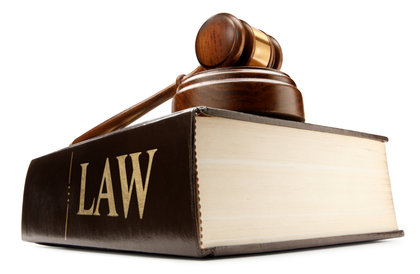
The motion to dimiss CAR’s lawsuit against Andrea Geller was denied, and the case will now enter the written discovery phase.
A Cook County judge has denied the motion to dismiss the Chicago Association of Realtors (CAR) lawsuit against Andrea Geller, allowing the suit to progress to the written discovery phase.
Last September, CAR filed a defamation lawsuit against Geller, seeking damages of $50,000-plus for written comments Geller made relating to the association’s impeachment of Bob Floss, who was CAR’s 2011-2012 president. It’s the first lawsuit the association has filed against a member in its 129-year history, and the majority of Geller’s comments mentioned in CAR’s complaint (which can be read in full here) were made on Chicago Agent‘s original report of the Floss impeachment.
Andrea Geller/CAR Lawsuit to Proceed
The judge presiding over the lawsuit, John C. Griffin, denied the motion to dismiss because, as he explained in his written response, “ [The] Plaintiffs have minimally pled sufficient facts to infer that the Defendant’s statements attacked the Plaintiffs’ integrity or character” – in other words, that CAR provided the court with enough facts in their original complaint for the lawsuit to proceed.
Some key things going forward are:
- Donald Battaglia of Battaglia Law, Geller’s legal counsel, said that though Geller is disappointed with the outcome of the motion to dismiss, she is all the same “looking forward to the full disclosure of CAR’s financial records,” which the written discovery phase of the lawsuit will entail.
- “Written discovery” amounts to the documents and records that both sides in a legal dispute request from the opposite party, and Battaglia said that Geller is using the written discovery period to request many of the financials from CAR that she had originally asked to see.
- Battaglia said that he has requested a number of specific documents from CAR related to their financials, including: documents related to any CAR entity expense reimbursement, including written expense reimbursement requests, correspondence relating to expense reimbursement and invoices, along with cancelled checks and CAR-issued credit cards; information about any funds used to pay for travel expenses of any past/present leadership or staff, if such funds exist; and the profit and loss statements and balance sheets for each CAR entity. Battaglia added that he has a forensic auditor on standby to receive the documents.
- Battaglia also said that by law, CAR now has 28 days to send him all of the documents he requested, though they can request an extension. Should CAR refuse to release the aforementioned documents, Battaglia said he will go to court on a motion for sanctions, and it will then be up to a judge to decide whether his discovery requests are relevant to the case or not; if the judge rules that the documents are relevant, CAR will be under a court order to produce them and could be held in contempt.
CAR, for its part, has requested extensive records of Geller’s emails and various correspondents related to the association, including: postings by Geller on Chicago Agent‘s website and the “Raising the Bar” Facebook page; communications between Geller and Floss regarding the postings and his removal as president; and other communications, including those with Tony LaMonica (a broker with Prudential Rubloff) regarding the postings, the association’s finance committee regarding CAR’s finances and communications with anyone else regarding the finances.
Will the Lawsuit Go to Trial?
Written discovery, according to a schedule laid out by Judge Griffin in his written response, should conclude for both parties by May 7; once that finishes, the case will enter “oral discovery,” which will involve depositions. Though Griffin’s deadline for the oral discovery is July 8, Battaglia said he is planning on calling in quite a few individuals for depositions, including CAR CEO Ginger Downs and the association’s entire 2011-2012 board of directors, so that deadline, he said, could be “optimistic.”
Once oral discovery is completed, and all the facts from both sides have been laid out before the judge, Battaglia said he will then file a motion for rejudgement that Geller did not defame the association with knowingly false statements – and Battaglia said that then, if his rejudgement is not accepted, the case to go trial.